
Partner and Vice President
Hematology-Oncology of Indiana, PC
CEO and President, Indy Hematology Education Inc.
Clinical Associate Professor, Marion University School of Osteopathic Medicine
Indianapolis, Indiana
Ruemu E. Birhiray, MD is an attending physician in medical oncology, hematology, and hematopoietic stem cell transplantation at Hematology-Oncology of Indiana, and at St. Vincent Hospital in Indianapolis, Indiana. After completing his internal medicine residency at Columbus Hospital in Chicago where he also served as Chief Medical Resident in 1994, he was a postgraduate fellow in bone marrow transplant at Johns Hopkins University in Baltimore and in medical oncology at the National Cancer Institute, National Institutes of Health in Bethesda, Maryland where his research included gene therapy and adoptive cellular immunotherapy strategies in bone marrow transplantation.
Dr. Birhiray's professional experience has also included serving as an attending physician, and Director of bone marrow transplantation and a member of Marshfield Clinic, Wisconsin and a Clinical Assistant Professor at the University of Wisconsin from 1998 to 2001. Additionally Dr. Birhiray was appointed an Associate Professor of bone marrow transplantation at Rush University, Chicago, Illinois in 2001, prior to joining Hematology Oncology of Indiana.
Subsequently, Dr. Birhiray, served as and director of Bone Marrow Transplantation and Institutional Principal Investigator for the National Surgical Adjuvant Breast and Bowel Project of the National Cancer Institute at St. Vincent's Hospital, Indianapolis.
Currently, he is also, Clinical Associate Professor, Marion University School of Osteopathic Medicine, Indianapolis, Indiana, and an Editorial Board Member of The Journal of Blood Transfusion and Hematopathology.
Projects for which Dr. Birhiray is principal investigator include reduced intensity allogeneic transplantation in hematologic malignancies, and a trial of Interferon A, CHOP, and rituximab therapy in advanced-stage follicular lymphoma, and neoadjuvant chemotherapy for breast cancer. Additional collaborations have included major phase III clinical trials.
Additionally Dr. Birhiray founded the Clinical research program at Hematology Oncology of Indiana.
His awards include, "Intern of the year" from Columbus Hospital, Hope award from the Indiana Wellness community and named "best physician" by the Indianapolis monthly magazine and “top doctor” by Castle Connelly.
In 2002, Dr. Birhiray founded and has served as Chair of the annual "Indy Hematology Review", a nationally respected program providing education for hematologists and oncologists nationally and regionally, and he is also President and CEO of Indy Hematology Education, Inc.
A member of the American Society of Clinical Oncology, the American Society of Hematology, and the American Medical Association, Dr Birhiray has published in the Journal of Clinical Oncology, Leukemia, Gene Therapy and Therapeutic Apheresis, Journal of Blood Transfusion and Hematopathology, Human Immunology, Familial Cancer, Annals of Pharmacotherapy, American Journal of Health System Pharmacists, Pharmacotherapy, in addition to multiple abstracts.
Dr. Birhiray is married to Donna Marie (nee Baynard) since 1995, and they are blessed with 3 children, a daughter, Maya, born in 1999, and a son, Dirin, born in 2003, and an older daughter Meaghan who was born in 1990.
President, Providence Hospital
Executive Vice President West Region
St. John Providence Health System
Warren, MI
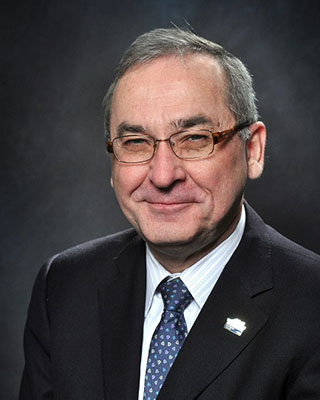
Michael C. Wiemann, MD, FACP, serves as Executive Vice President of Medical Affairs and Chief Medical Officer of St. John Providence Health System, Executive Vice President of the Providence West Region, and the President of Providence Hospital. Prior to joining St. John Health, Dr. Wiemann served as Senior Vice President and Chief Medical Officer at St. Vincent Hospitals and Health Care Center in Indianapolis. While at St. Vincent, Dr. Wiemann served on numerous quality improvement and other committees. At the national level, he continues to serve on several Ascension Health committees. In 2006 and 2007, the Consumers' Research Council of America in Washington, D.C., named him one of "America's Top Physicians in Medical Oncology."
After receiving his medical degree from Louisiana State University School of Medicine in Shreveport, he completed his internship and residency and served as Chief Resident in Internal Medicine at LSU Medical Center and the Veterans Administration Hospital in Shreveport. He then became a fellow in Medical Oncology at Roger Williams General Hospital at Brown University in Providence, Rhode Island. After completion of his fellowship, he joined the faculty as Medical Oncologist and Professor at Brown University School of Medicine. Among other leadership positions, he served as Director of the Bone Marrow Transplant Program at Roger Williams General Hospital and as the associate director of Brown’s NCI-designated cancer center.
He was subsequently recruited to St. Vincent to serve as its first medical director of oncology. During his more than 20 years in this position, he oversaw the construction of the St. Vincent inpatient hospice and the Oncology Center and established the bone marrow transplant program. He also was the principal investigator for the Ascension Health/St. Vincent National Community Cancer Center Program. Dr. Wiemann’s publications reflect his research interests in bone marrow transplant and immunotherapeutics for the treatment of renal cell carcinoma and metastatic melanoma. He is widely published in peer-reviewed journals including Blood, Cancer Research, Cancer Biotherapy and Radiopharmaceuticals, Cancer, European Journal of Gynaecological Oncology, and Gynecologic Oncology. He has contributed numerous invited reviews and book chapters and delivered presentations both nationally and internationally.
Program Director, Dana-Farber Cancer Institute
Kraft Family Professor of Medicine, Harvard Medical School
Boston, MA
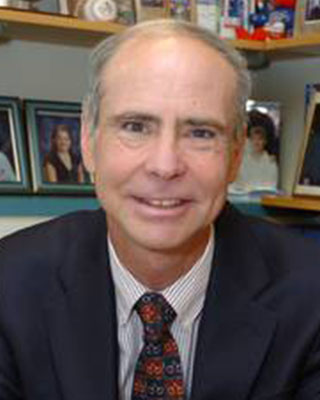
Dr. Anderson is the Kraft Family Professor of Medicine at Harvard Medical School and serves as Director of the Jerome Lipper Multiple Myeloma Center and Lebow Institute for Myeloma Therapeutics at the Dana-Farber Cancer Institute. He is a Doris Duke Distinguished Clinical Research Scientist and American Cancer Society Clinical Research Professor.
Over the last three decades, he has focused his laboratory and clinical research studies on multiple myeloma. He has developed laboratory and animal models of the tumor in it is microenvironment which have allowed for both identification of novel targets and validation of novel targeted therapies, and has then rapidly translated these studies to clinical trials culminating in FDA approval of novel targeted therapies. His paradigm for identifying and validating targets in the tumor cell and its milieu has transformed myeloma therapy and markedly improved patient outcome.
He is a recipient of many scientific and humanitarian awards including: the International Myeloma Workshop Waldenström’s Award; the International Myeloma Foundation Robert A. Kyle Lifetime Achievement Award; the American Association for Cancer Research Joseph H. Burchenal Award; the American Society of Hematology William Dameshek Prize; the Johns Hopkins Society of Scholars; election to the Royal Colleges of Physicians and of Pathologists of the United Kingdom; the American Society of Clinical Oncology David A. Karnofsky Award; the Hope Funds for Cancer Research Award of Excellence in Clinical Research; the Ron Burton Humanitarian Award; the Harvard Medical School Warren Alpert Foundation Prize; the American Cancer Society Medal of Honor in Science, the Leonard P. Zakim Patient Advocacy Award: the Samuel Waxman Research Foundation David Workman Memorial Award; the University of Miami Sylvester Cancer Center Annual Zubrod Memorial Award; and appointment as a Fellow of the American Association for Cancer Research Academy, to the Board of Scientific Advisors of the National Cancer Institute, and to the Institute of Medicine’s National Cancer Policy Forum. He is a member of the Institute of Medicine of the National Academy of Sciences, served as President of the International Myeloma Society, and is President of the American Society of Hematology.
Dr. Anderson is a graduate of Boston University and Johns Hopkins Medical School. He trained in internal medicine at Johns Hopkins Hospital, and then completed hematology, medical oncology, and tumor immunology training at the Dana-Farber Cancer Institute.
Johns Hopkins Family Professor of Medicine and Oncology
Director, Division of Hematology, Johns Hopkins University School of Medicine
Baltimore, MD
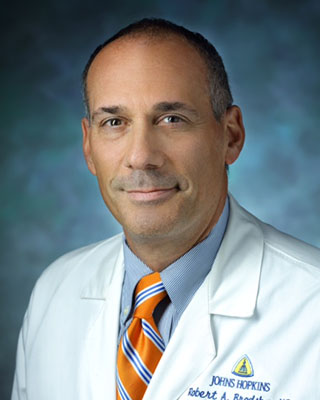
Dr. Brodsky is the Johns Hopkins Family Professor of Medicine and Oncology Research, and a member of the Johns Hopkins Kimmel Cancer Center. He also serves as the Director of the Division of Hematology and the T32 Training Program and Director of the Physician-Scientist Pathway for the Osler Residency Program.
Dr. Brodsky received his medical degree from Hahnemann University. He completed his residency in Internal Medicine at Vanderbilt University School of Medicine and his fellowship training in hematology at the National Institutes of Health and in oncology at Johns Hopkins University.
Dr. Brodsky’s clinical and academic interests relate to bone marrow failure disorders, hemolytic anemias, and complement. He and his colleagues pioneered the use of high-dose cyclophosphamide for treating autoimmunity and alloimmunity. He has a special interest in using post-transplant cyclophosphamide to prevent graft-versus-host disease and to expand the donor pool to include HLA-haploindentical donors for aplastic anemia and severe hemoglobinopathies.
He has been recognized with numerous honors. In 2013, he received the Clinical Research Achievement Award from the Clinical Research Forum for his work in sickle cell disease. He was a Clinical Research Scholar of the Leukemia and Lymphoma Society of America in 2000. He is on the editorial board for Blood and is an Associate Editor for the Journal of Clinical Investigation. He on the Executive Committee of the American Society of Hematology (ASH) and serves as Secretary for ASH.
Deputy Chief, Division of Hematology/Oncology in the Department of Medicine
Head of Hematology and Professor of Medicine
Lombardi Comprehensive Cancer Center, Georgetown University Hospital
Washington, DC
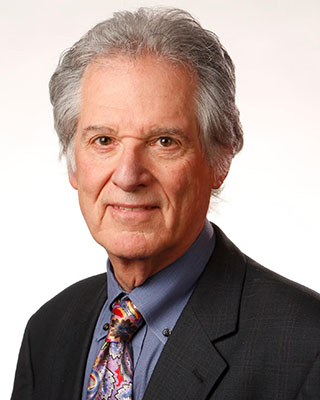
Dr. Bruce Cheson, M.D., FACP, FAAS, FASCO attended the University of Virginia and then Tufts University Medical School. He completed his internship and residency in Internal Medicine at the University of Virginia Hospitals and then a clinical and research fellowship in Hematology at New England Medical Center Hospital. From 1977-1984 he was Assistant Professor of Medicine in the Division of Hematology/Oncology at the University of Utah. From 1986-2002, he was Head, Medicine Section, CTEP at the National Cancer Institute.
Currently, Dr. Cheson is Professor of Medicine, Head of Hematology, and Deputy Chief of Hematology-Oncology at Georgetown University Hospital, Lombardi Comprehensive Cancer Center. Dr. Cheson has authored over 500 medical publications and abstracts and has contributed to over 60 texts. He is Editor-in-Chief of Annals of Lymphoma, former Editor-in-Chief of Clinical Advances in Hematology, Associate Editor of the Journal of Clinical Oncology and Editor-in-Chief of Clinical Lymphoma, Leukemia and Myeloma. He is also on the editorial board of numerous journals. He has also been the editor of the American College of Physician’s Medical Knowledge Assessment Program in Oncology and the ASCO SEP. He has served on several committees of the American Society of Clinical Oncology and was on its Board of Directors, and edited ASCO News and ASCO Daily News. From 2002-2006, he was on the Oncologic Drug Advisory Committee to the U.S. Food and Drug Administration. He is past-Chair of the Lymphoma Committee of the Cancer and Leukemia Group B/Alliance, the Scientific Advisory Board of the Lymphoma Research Foundation, and the AJCC Subcommittee on Lymphoma. Dr. Cheson’s clinical interests focus on the development and evaluation of new therapeutic approaches for hematologic malignancies.
Assistant U.S. Surgeon General
Clinical Director, National Heart Lung and Blood Institute
National Institutes of Health
Bethesda, MD
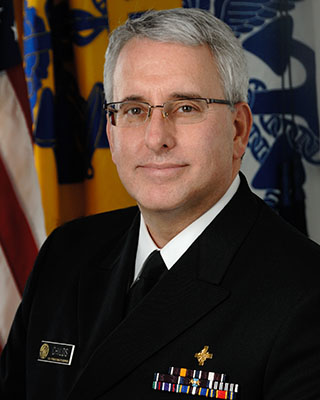
Rear Admiral (RADM) Richard Childs, M.D., is the Clinical Director of the National Heart, Lung, and Blood Institute’s (NHLBI) Division of Intramural Research (DIR) at the National Institutes of Health (NIH), and is the Section Chief of the Laboratory of Transplantation Immunotherapy in the NHLBI.
RADM Childs graduated from Georgetown University in Washington, D.C., in 1987 and Georgetown University Medical School in 1991. He completed his internship, residency, and a Chief Residency in internal medicine at the University of Florida in Gainesville followed by fellowships in Medical Oncology at the National Cancer Institute (NCI) and Hematology at the NHLBI. RADM Childs was appointed as a tenure-track investigator in the Hematology Branch of the NHLBI in 1999 and received tenure in 2006, when he was appointed Senior Clinical Investigator and Chief of the Section of Transplantation Immunotherapy.
Since 1995, RADM Childs has served as an officer in the United States Public Health Service (USPHS) Commissioned Corps at the NIH in the NHLBI as a physician-scientist advancing public health through medical research. RADM Childs was appointed Clinical Director of the NHLBI in 2013. The mission of the NHLBI DIR is to conduct cutting-edge research on heart, lung, blood diseases, and cancer to discover, develop, and deliver new diagnostics and therapeutics. As NHLBI’s Clinical Director, he directs and oversees the entire clinical research portfolio of the institute’s intramural research division, which is one of the largest and most clinically active institutes within the NIH. He also authored and spearheaded a multi-million dollar strategic plan that has revamped and revitalized the infrastructure supporting clinical research within the NHLBI. From December 2014 through March 2015, RADM Childs deployed to Monrovia Liberia as part of the United States Ebola Crisis response in West Africa, where he served as the Chief Medical Officer (CMO) and helped expand the supportive care capabilities of the unit by setting up its blood bank and X-ray capabilities.
In his role as a tenure-track and subsequent tenured medical researcher in the NHLBI, he has conducted bench-to-bedside studies that have shed scientific insight into cancer biology and he is recognized as an international authority in the field of tumor immunology and bone marrow transplantation. RADM Childs maintains an extremely robust laboratory and research bone marrow transplant program, has performed hundreds of experimental stem cell transplants at the NHLBI, and has published over 190 original research papers in journals such as the New England Journal of Medicine, the Lancet, Nature Medicine, and Nature.
RADM was elected into the American Society of Clinical Investigation (ASCI) in 2009, and is the recipient of numerous awards, including the NIH Director’s Scientific Medal Award, the NIH Distinguished Clinical Teacher Award and the United States Commissioned Corps’ Outstanding Service Medal and Distinguished Service Medal for research that has improved the field of hematopoietic stem cell transplantation.
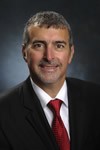
Professor of Medicine
Director, Leukemia Program
Duke University
Durham, North Carolina
Dr. Harry Erba received his medical degree and doctorate in biophysics from Stanford University. He completed an internship and residency in internal medicine, as a well as a fellowship in hematology/oncology at the Brigham and Women's Hospital, Harvard Medical School. He was previously Professor of Internal Medicine at the University of Alabama at Birmingham (UAB), served as Director of the Hematologic Malignancy Program, and was Associate Director for Clinical Research in the UAB Comprehensive Cancer Center. Dr. Erba held the Alfred F. LoBuglio Endowed Chair for Translational Cancer Research from 2013 through 2018. He is currently Professor of Internal Medicine at Duke University and is a faculty member of the Division of Hematologic Malignancy and Cellular Therapy. In addition, Dr. Erba serves as the Director of the Leukemia Program, as well as Director of Phase I Unit for Hematologic Malignancies. He is a member of the Duke Cancer Institute.
As an active member in the SWOG (formerly, Southwest Oncology Group) Leukemia Committee for over a decade, Dr. Erba worked closely with the leadership of the SWOG Leukemia, Lymphoma, Myeloma and Bone Marrow Transplant Committees. He was appointed Chairman of the SWOG Leukemia Committee, and now serves on the NCI Leukemia Steering Committee. He also served on the National Comprehensive Cancer Network (NCCN) Practice Guidelines Committees for acute myeloid leukemia (AML), chronic myeloid leukemia (CML), myelodysplastic syndromes (MDS), and myeloid growth factors.
Dr. Erba has focused on the assessment of novel therapies in AML, MDS, CML, and other myeloproliferative neoplasms. He has been involved in numerous clinical trials in these hematologic malignancies, led many national trials, and played major roles in the development of several new drugs.
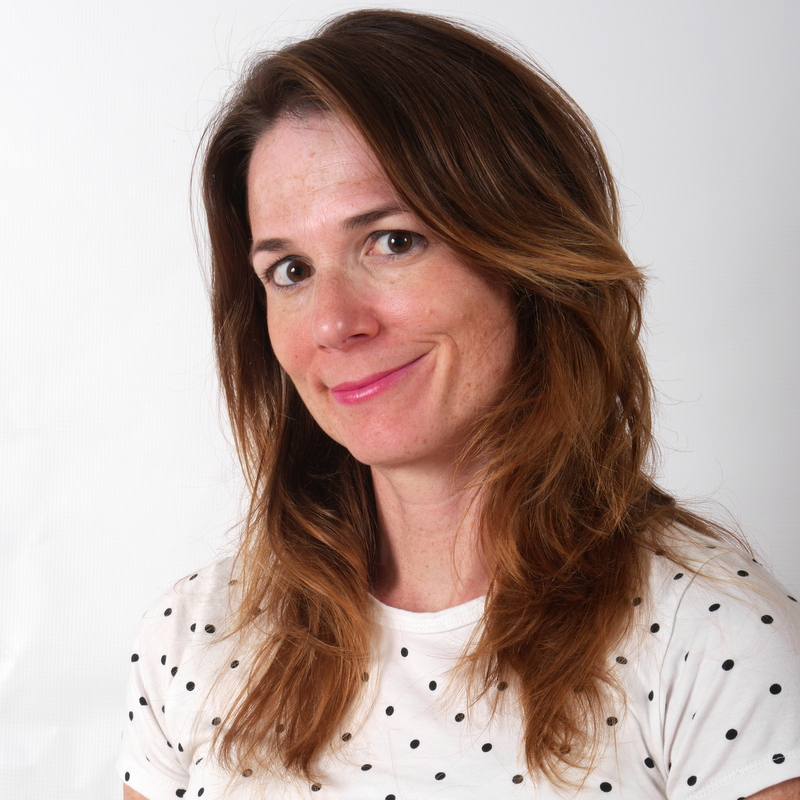
EDUCATION: Fellowship, Medical Oncology
Oregon Health & Science University
2007-2011
Residency, Internal Medicine
Oregon Health & Science University
2005-2007
Medical Doctor
Stanford University School of Medicine
2001-2005
Doctor of Philosophy, Cancer Biology
Stanford University School of Medicine
1998-2005
Bachelor of Science, Microbiology and Molecular Genetics
University of California, Los Angeles
1994-1997
ACADEMIC APPOINTMENTS:
2013 - Present
Assistant Professor, School of Medicine, Department of Medicine Division of Hematology/Oncology,
University of California, Irvine
2014 - Present
Joint Faculty, School of Medicine, Department of Biological Chemistry
University of California, Irvine
2011 – 2013
Instructor, Department of Medicine, Division of Hematology & Medical Oncology
Oregon Health & Science University
2011 – 2013
Staff Hematologist, Department of Medicine
Portland Veterans Affairs Medical Center
NON-ACADEMIC APPOINTMENTS:
2014 - Present
Leader, Hematologic Malignancies Disease Oriented Team, Chao Family Comprehensive Cancer
Center
University of California, Irvine
Angela G. Fleischman M.D. Ph.D., Curriculum Vitae
12/13/2018 Page 2
RESEARCH EXPERIENCE:
2013- University of California, Irvine
Principal Investigator of basic science laboratory
Research Focus: Pathogenesis of Myeloproliferative Neoplasm
2007-2013 Brian J. Druker Laboratory, Oregon Health & Science University
Medical Oncology Fellowship Research Focus: Pathogenesis of Myeloproliferative
Neoplasm
1998-2005 Irving L. Weissman Laboratory, Stanford University School of Medicine
PhD Thesis: Molecular Mechanisms Involved in Commitment to the Lymphoid Lineage
1996-1998 Jeffrey H. Miller Laboratory, University of California, Los Angeles
Research Assistant: Archaebacteria transcriptional regulation
Undergraduate Honors Thesis: Role of E. Coli DNA Pol in mutagenesis
LICENSES TO PRACTICE MEDICINE:
2013 - Present California
2011 - 2014 Oregon
BOARD CERTIFICATIONS:
2010 American Board of Internal Medicine, Internal Medicine
2013 American Board of Internal Medicine, Medical Oncology
MEMBERSHIPS IN PROFESSIONAL ORGANIZATIONS:
2009 – Present American Society of Hematology (ASH)
2010 – Present International Society for Hematology and Stem cells (ISEH)
2014 – Present Society of Hematologic Oncology (SOHO)
2014 – Present Medical Oncology Association of Southern California (MOASC)
2015 – Present University of California Hematologic Malignancies Consortium
2016 – Present South West Oncology Group (SWOG), Leukemia group
2017 – Present MPN Quality of Life Study Group
AWARDS AND HONORS:
2012 American Cancer Society Seed Research Grant
2014 Translational Research Training in Hematology Program
2014, 2017 MPN Challenge Award
2014 V Foundation Scholar Award
2018
2018
Anti-Cancer Challenge Award
MPN Hero Award
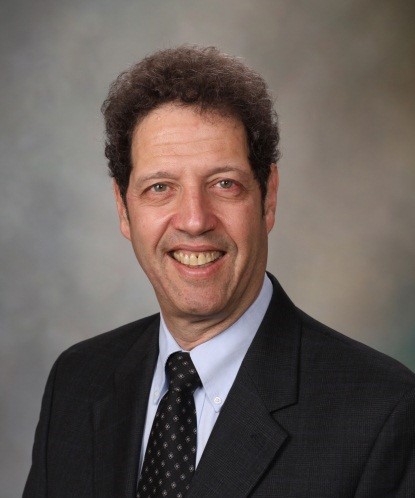 Dr. Gertz is the Roland Seidler Jr. Professor of the Art of Medicine and Chair Emeritus of the Department of Internal Medicine, at Mayo Clinic in Rochester, Minnesota. He is a Master of the American College of Physicians. Undergraduate degree was awarded with highest distinction from Northwestern University graduating Phi Beta Kappa. Dr. Gertz received his medical degree cum laude from Loyola Medical School in Maywood, Illinois and was elected to Alpha Omega Alpha the medical honor society. He completed a 3-year medical residency at Rush Presbyterian St. Luke’s Hospital in Chicago, Illinois, and was voted Resident of the Year for 2 of those years. He completed training in hematology and oncology at the Mayo. He was Chair of the division of hematology for 8 years. He was Past President of the Mayo Staff Officers and Councilors. He was awarded the Mayo Distinguished Clinician Award for his contributions to patient care. He was the first treasurer of the International Society of Amyloidosis and was the first treasurer of the International Myeloma Society. He has authored over 700 peer reviewed publications and over 50 book chapters. He serves on the editorial boards of amyloidosis, Acta Haematologica and Clinical Lymphoma & Myeloma. He is coeditor of Neoplastic Diseases of the Blood.
Dr. Gertz is the Roland Seidler Jr. Professor of the Art of Medicine and Chair Emeritus of the Department of Internal Medicine, at Mayo Clinic in Rochester, Minnesota. He is a Master of the American College of Physicians. Undergraduate degree was awarded with highest distinction from Northwestern University graduating Phi Beta Kappa. Dr. Gertz received his medical degree cum laude from Loyola Medical School in Maywood, Illinois and was elected to Alpha Omega Alpha the medical honor society. He completed a 3-year medical residency at Rush Presbyterian St. Luke’s Hospital in Chicago, Illinois, and was voted Resident of the Year for 2 of those years. He completed training in hematology and oncology at the Mayo. He was Chair of the division of hematology for 8 years. He was Past President of the Mayo Staff Officers and Councilors. He was awarded the Mayo Distinguished Clinician Award for his contributions to patient care. He was the first treasurer of the International Society of Amyloidosis and was the first treasurer of the International Myeloma Society. He has authored over 700 peer reviewed publications and over 50 book chapters. He serves on the editorial boards of amyloidosis, Acta Haematologica and Clinical Lymphoma & Myeloma. He is coeditor of Neoplastic Diseases of the Blood.
Professor of Medicine
Chairman of the Department of Leukemia
University of Texas MD Anderson Cancer Center
Houston, TX
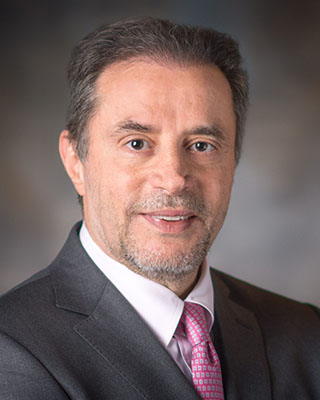
Hagop Kantarjian, M.D. is Professor of Medicine and Chair of the Department of Leukemia at The University of Texas MD Anderson Cancer Center, where he is also the Samsung Distinguished Leukemia Chair in Cancer Medicine. He is also a non-resident fellow in health policy at the Rice University Baker Institute.
Dr. Kantarjian has received several prestigious honors and awards including the 37th Jeffrey A Gottlieb Memorial Award (2012), the John Mendelsohn Lifetime Scientific Achievement Award (2008), the Joseph H. Burchenal Memorial Award (2013), the Charles A. LeMaistre, M.D. Outstanding Achievement Award in Cancer (2014), and America’s Top Doctors, Castle Connolly Medical (2003-present). He was also selected the top Castle Connolly National Physician of the Year Award for Lifetime Achievement (2014).
Dr. Kantarjian’s research focuses on translational-clinical developmental therapeutics in leukemia. In the past three decades, he has made several contributions that improved prognosis and survival in patients with chronic myeloid leukemia (tyrosine kinase inhibitors, e.g. imatinib, dasatinib, nilotinib, bosutinib which improved the 10-year survival from 20% to 90%), in acute lymphocytic leukemia (HPER-CVAD regimen and its derivatives which improved cure rates from 20% to 60+%), the discovery of decitabine for the treatment of myelodysplastic syndrome, and of clofarabine for the treatment of leukemias, among others. His research and collaborations were the basis for the FDA approvals of over 20 drugs in leukemia. He is an author on over 1,800 peer-reviewed publications.
Professor of Medicine and Pathology
Director, Clinical Coagulation Laboratory, Division of Laboratory Medicine
Lombardi Comprehensive Cancer Center, Georgetown University Hospital
Washington, DC
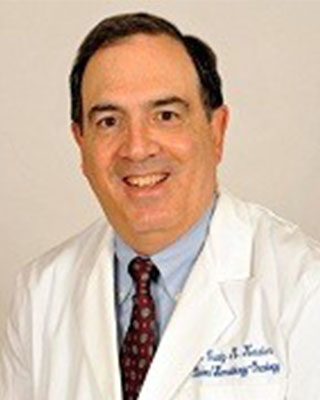
Dr. Craig Kessler is a professor of Medicine and Pathology in the Division of Hematology/Oncology and Section Chief of Hematology at the Lombardi Comprehensive Cancer Center and Georgetown University Medical Center. He is also the Director of Clinical Coagulation Laboratory, Division of Laboratory Medicine, in the Department of Pathology. Dr. Kessler is an expert in internal medicine and hematology and has special interests in anemias, bleeding disorders, coagulation and platelet disorders, hematologic malignancies, myeloproliferative diseases, thrombophilias and hemophilias, and treatment of hematologic diseases.
Dr. Kessler received his medical degree from the Tulane University School of Medicine in New Orleans, Louisiana, where he was a member of Alpha Omega Alpha Honor Society. He completed his residency in internal medicine at the Ochsner Foundation Hospital in Louisiana and his fellowship in hematology/oncology at the Johns Hopkins Hospital and University in Baltimore, Maryland.
He then became a full-time faculty member and attending physician in the Section of Special Hematology at the National Institutes of Health in Bethesda, Maryland. In 1982, he joined the Division of Hematology and Oncology at the George Washington University School of Medicine, where he became tenured professor of medicine and chief of the division. In addition, Dr Kessler is director of the Division of Coagulation, director of cellular and therapeutic apheresis, director of the Hemophilia and Thrombophilia Comprehensive Treatment Center, and immediate past chief of the Division of Hematology/Oncology.
He is co-editor of Haemophilia and Seminars in Thrombosis and Hemostasis, and is chair of the Medical and Scientific Advisory Council of the National Hemophilia Foundation. Dr Kessler has been awarded Mastership in the American College of Physicians and has published more than 175 peer reviewed articles and 4 books.
Professor of Medicine, Section of Hematology/Oncology
Director, Hematologic Malignancies Clinical Research Program
The University of Chicago Comprehensive Cancer Center
Chicago, IL
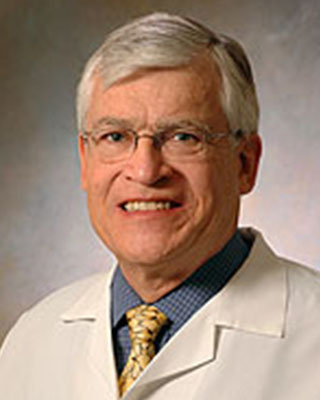
Richard Larson, MD, is a professor of medicine in the Section of Hematology/Oncology and director of the Hematologic Malignancies Clinical Research Program at the University of Chicago. He received his medical degree from the Stanford University School of Medicine and completed postdoctoral training in internal medicine, hematology and oncology at the University of Chicago. He was a fellow of the Leukemia Society of America and was granted a Clinical Oncology Career Development Award from the American Cancer Society.
Dr. Larson has been a member of the faculty in the Section of Hematology/Oncology and the Comprehensive Cancer Center at the University of Chicago since 1983. He was Director of the Leukemia Clinical Research Program from 1983 to 2000, when he established the adult allogeneic bone marrow transplant program. Dr. Larson is board certified in internal medicine, hematology and medical oncology, and has served as a member of the Hematology Subspecialty Board of the American Board of Internal Medicine.
Other appointments include chair of the Leukemia Committee of the Cancer and Leukemia Group B, where he directed a large portfolio of clinical trials and ancillary laboratory studies in acute and chronic leukemias and myeloma. He is a former councilor on the Executive Committee and Treasurer of the American Society of Hematology and a member of the American Society of Clinical Oncology and the American Association for Cancer Research. Dr. Larson has published more than 300 papers, reviews, and book chapters on clinical and laboratory studies in human leukemias and, in addition, has served on the editorial boards of Blood, the Journal of Clinical Oncology, and Leukemia. He is a Section Editor for Leukemia of UpToDate.
He maintains an active clinical practice at the University of Chicago Medical Center and participates actively in the training of fellows in hematology/oncology. His current research interests include clinical trials in hematologic malignancies and stem cell transplantation, experimental therapeutics, the determinants of response to therapy in leukemia and myelodysplastic syndromes, and the etiology of therapy-related leukemias.
Associate Dean of Clinical Research and Interim Chair of Department of Medicine
Richard T. Silver Distinguished Professor of Hematology and Medical Oncology
Weill Cornell Medical College
New York, NY
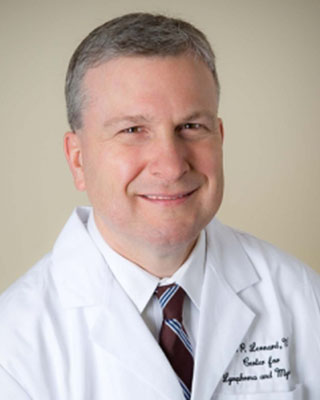
John P. Leonard, MD, is the Richard T Silver Distinguished Professor of Hematology and Medical Oncology and Associate Dean for Clinical Research at the Weill Cornell Medical College. He is Vice Chairman for Clinical Research of the Department of Medicine and Associate Director of the Cancer Center at Weill Cornell Medical College and New York Presbyterian Hospital, where he also serves as Attending Physician, Chief of the Lymphoma Service, and Director of the Joint Clinical Trials Office in New York City.
Dr. John P. Leonard received his BA from Johns Hopkins University and MD from the University of Virginia School of Medicine in Charlottesville, and completed his residency in internal medicine at New York Hospital - Cornell Medical Center and Memorial Sloan-Kettering Cancer Center. Dr. Leonard completed a fellowship in hematology and oncology at Cornell, and served as chief medical resident at New York Hospital - Cornell Medical Center.
His primary research interest is in the development of novel therapeutic strategies for the treatment of lymphoma and related hematologic malignancies. Much of his work has involved the development of novel therapies for lymphoma, including monoclonal antibodies, other immune-based treatments, targeted agents, and other innovative approaches. Dr. Leonard’s research has been published in numerous medical journals, and he has served as a member of the editorial boards of Blood and Journal of Clinical Oncology, leading international journals in these fields. He is Chair of the Lymphoma Committee of the Alliance for Clinical Trials in Oncology, a multicenter cooperative group and key component of the National Cancer Institute’s National Clinical Trials Network. Dr. Leonard is an elected member of the American Board of Internal Medicine and American Society of Clinical Investigation.
Advanced Oncology Nurse Practitioner
Hematology Oncology of Indiana
Indianapolis, IN

Dr. Linda Nielsen received her doctorate of nursing practice from Purdue University. Her research was on the application of an implementation framework in a survivorship program in a community oncology clinic. She is an Advanced Oncology Certified Nurse Practitioner with Hematology Oncology of Indiana. Her 33 years of clinical experience include hematology/oncology, pain management, addictions, psychiatric care, medical/surgical, home care, geriatrics, ER, hospice, pain management, trauma, cardiac and burn unit. She currently works in a community oncology clinic with 8 other providers with a primary population of general medical hematology-oncology patients. She participates in clinical research trials and has presented on a number of hematology topics.
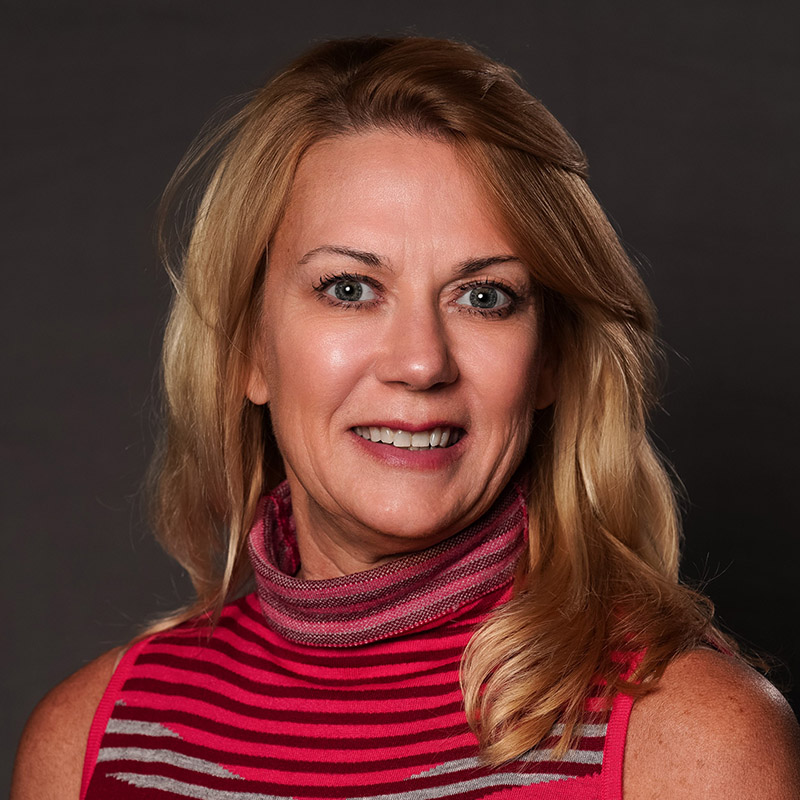
EDUCATION AND CERTIFICATION:
- Prescriptive Privileges, August 1995.
- Indiana, APN Prescriptive Authority, 71000036A
- Indiana, Registered Nurse, 28100345A
- Advanced Oncology Certified Nurse, June 1995. Recertified 1999, 2003, 2007,
2011, 2015. - American Nurses’ Credentialing Center, Registered Nurse Practitioner 1994.
Recertified 1999,2004, 2009, 2014. - The Role of the Oncology Nurse in Antiangeogenic Therapy. Sponsored by
Celgene. 2000,2001,2002. - Patient and Public Pain Education Seminar. Sponsored by The City of Hope,
January 2000. - Indiana University-Purdue University of Indianapolis, Indianapolis, IN,
Masters in Nursing, May 1994. GPA: 3.85/4.0. - Nurse Consensus Conference: The Role of the Oncology Nurse in Influencing
Chemotherapy Delivery. Sponsored By Amgen. April 1999,
2000,2001,2002,2003. - Supportive Care Visiting Faculty Training Program. Sponsored by Bristol
Myers Squibb Oncology/Immunology. February 1998,1999. - Strength for Caring, Strength for Living. Management of Fatigue. Sponsored
by OrthoBiotech. February 1999. - Oncology Certified Nurse Certification, May 1990. Recertified 1994.
- PIC (Percutaneous Intravenous Catheter) Line Placement Certification, May
1990. - Methodist Hospital, Indianapolis, IN, Basic Oncology Nursing Class,
September 1988-April 1989. - Methodist Hospital, Indianapolis, IN, Basic Oncology and Chemotherapy
Administration Training Course. July – October 1987. - Purdue University, West Lafayette, IN, Bachelor of Science Degree in Nursing,
May 1987. GPA: 5.10/6.0.
WORK EXPERIENCE:
Community Hospital Oncology Physicians Adult Nurse Practitioner.
2012 to present.
- Work in collaborative practice with several adult oncologists/hematologists.
- Provide symptom management for patients with various oncology related
problems. - Provide routine health care to oncology patients seen in follow-up.
- Perform history and physical examinations on various new consults as well
as patients being admitted to the hospital. - Write chemotherapy and antiemetic orders.
- Administer physical exams on patients who present to the clinic with acute problems.
- Pain control management.
- Perform various procedures such as suture removal, incision and draining of infected wounds, PAP smears, paracentesis and GYN exams.
- Provide comprehensive histories and physical exams for patients enrolled in clinical trials.
- Assess and examine patients as they come to the clinic prior to their chemo treatment appointment.
QUALITY ONCOLOGY : Adult Oncology Nurse Practitioner June
2003 to 2011.
- In collaborative practice with 2 adult oncologists/hematologists.
INDIANA ONCOLOGY HEMATOLOGY CONSULTANTS: Adult Oncology
Nurse Practitioner. May 1994 to June 2003.
- Resource person for Indiana Community Cancer Outreach Nurses.
- Wrote and developed patient education material for the use with patient and
family teaching.
INDIANA ONCOLOGY HEMATOLOGY CONSULTANTS: Oncology Staff
Nurse. June 1987 to June 1994. - Primary nurse for 5 adult oncologists/hematologists.
- Telephone triaging of patients as they call the clinic.
- Lecturer for various oncology training programs.
- Administered chemotherapy to patients with various forms of cancer in an
outpatient setting. - Conducted new patient teaching regarding disease, the treatment and
possible side effects. - Management of patients on home Formerly chemotherapy with ambulatory
infusion pumps. - Formerly responsible for all research patients and their various research
protocols. - Formerly served as data manager for the research projects conducted from
the office. - Formerly ordered all chemotherapy drugs for the office.
- Formerly managed research for 2 pediatric oncologist/hematologists.
RESEARCH EXPERIENCE:
- Hoosier Oncology Group, Research and Data Management Training Seminar,
1990. - National Surgical Adjuvant Breast and Bowel Protocols, Research and Data
Management Seminar and Research and Data Management Seminar and
Training, 1990. - Children’s Cancer Study Group, Research and Data Management Seminar and
Training, 1990. - Chosen as one of four nurses to work with the Methodist CCOP Program.(Community Clinical Oncology Program).
- Former Methodist Hospital Research Associate.
- Worked directly with four major research bases-NSABP, ECOG, CCSG, HOG and various cancer control protocols.
- Managed research protocols at Indiana Oncology Hematology Consultants.
- Collected, maintained and organized all incoming research data.
- Worked directly with a variety of experimental drugs.
- Formerly took all calls from research patients.
- Worked with a variety of pharmaceutical research protocols.
ACTIVITIES AND HONORS:
- Radio and TV experience
- Omnia-Prova Education NSCLC learning group facilitator.
- Pfizer Ibrance Steering Committee 2018
- HSR Advisory Board 2007.
- Pharmacia Nursing Advisory Board, 2001-2003.
- Roche Advisory Board. Use of Xeloda, 2002.
- Novartis Advisory Board. Hormonal Agents in the Treatment of Advanced
Breast Cancer with Femara, 2001. - Pfizer Advisory Board, Ibrance, 2015.
- Sandoz Biopharmaceuticals Advisory Board, 2014.
- Bristol Myers Squibb Advisory Board, 2013.
- Winner of F.I.R.E Award (Fatigue Initiative through Research and Education).
July 1995. - Oncology Nursing Forum. Pilot Reviewer, 2003, 2004.
- Oncology Nursing Society Seal of Endorsement Program Field Reviewer,
2002. - The Wellness Community Professional Advisory Board, 2002 to 2011.
- Oncology Certified Nurse,May, 1990. Recertified 1994.
- Member of American Academy of Nurse Practitioners.
- Member of Oncology Nursing Society.
- Member of Pain Management Special Interest Group.
- Member of Nurse Practitioner Special Interest Group.
- Member of Office Nurse Special Interest Group.
- Member of Chemotherapy Special Interest Group.
- Nominated for National Oncology Office Nurse of the Year, 1995.
- Gennesaret Free Clinic, monthly volunteer medical care provider, 2000 to
present. - National Pork Industry Queen, 1986.
- Traveled across the United States doing various promotional activities.
- Responsible for extensive media interviews including television, radio and
telephone interviews. - Public speaking on a regular basis to a wide variety of audiences.
- Learned excellent time management skills by balancing a broad traveling schedule while attending college full time.
- Responsible for organizing promotional and educational activities.
- Indiana Pork Industry Queen, 1985.
- Spencer Scholarship, 1984,1985,1986.
- Member of Phi Mu Sorority.
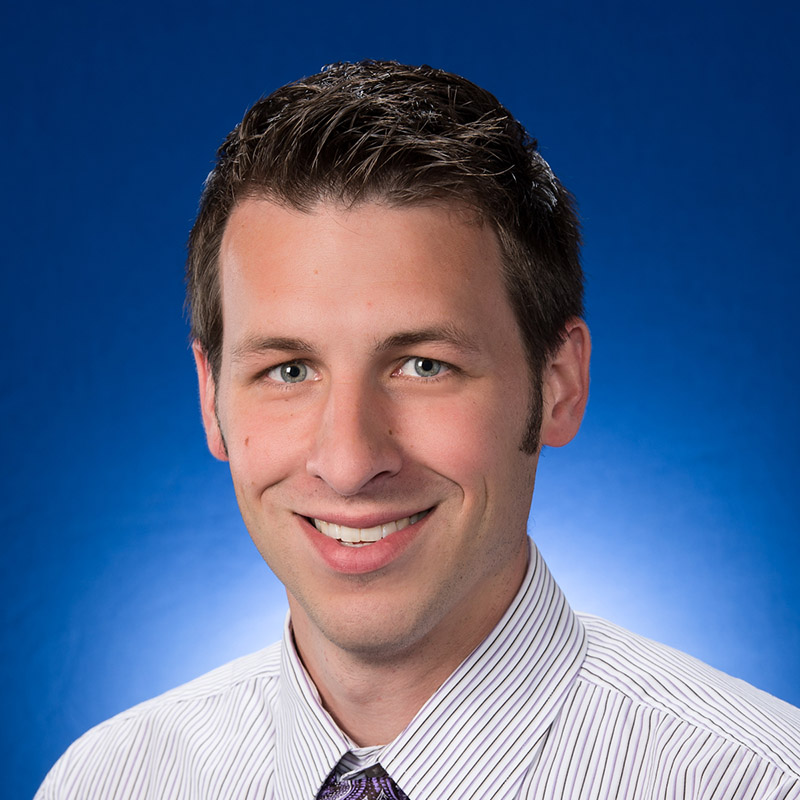 David Reeves, PharmD, BCOP is an Associate Professor of Pharmacy Practice for the College of Pharmacy and Health Sciences at Butler University and Clinical Pharmacy Specialist in Hematology/Oncology at Franciscan Physician Network Oncology/Hematology Specialists in Indianapolis, IN. Prior to his current position at Franciscan Health, David spent 7 years as a Clinical Pharmacy Specialist at St. Vincent Indianapolis Hospital.
David Reeves, PharmD, BCOP is an Associate Professor of Pharmacy Practice for the College of Pharmacy and Health Sciences at Butler University and Clinical Pharmacy Specialist in Hematology/Oncology at Franciscan Physician Network Oncology/Hematology Specialists in Indianapolis, IN. Prior to his current position at Franciscan Health, David spent 7 years as a Clinical Pharmacy Specialist at St. Vincent Indianapolis Hospital.
After receiving his Doctor of Pharmacy from Wayne State University’s Eugene Applebaum College of Pharmacy in Detroit Michigan, he completed a pharmacy practice residency at William Beaumont Hospital in Royal Oak Michigan followed by a Hematology/Oncology specialty practice residency at the Barbara Ann Karmanos Cancer Center in Detroit Michigan.
David is a Board Certified Oncology Pharmacist who has published in numerous peer-reviewed journals including Pharmacotherapy, Annals of Pharmacotherapy, Supportive Care in Cancer, American Journal of Health-System Pharmacy, Cancer Chemotherapy and Pharmacology, and Journal of Oncology Pharmacy Practice.
Clinical Program Leader and Director, Dana-Farber Cancer Institute
R.J. Corman Professor of Medicine, Harvard Medical School
Boston, MA
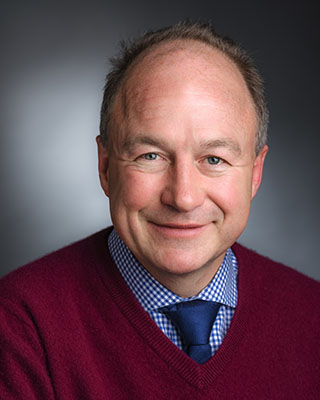
Dr. Paul Richardson, MD, is the RJ Corman Professor of Medicine at Harvard Medical School and Clinical Program Leader and Director of Clinical Research of the Jerome Lipper Multiple Myeloma Center, Dana-Farber Cancer Institute (DFCI), Boston, USA.
Paul obtained his medical degree from St. Bartholomew’s Hospital Medical College, University of London, before completing residencies at Newcastle University School of Medicine, the Royal Marsden Hospital (London and Surrey) and the Beth Israel Deaconess Medical Center, Harvard Medical School, Boston, USA. His Fellowships in haematology/oncology and medical oncology were completed at Tufts University School of Medicine, Baystate Medical Center, Springfield, USA, and at Harvard Medical School, DFCI.
Paul’s primary research interest is in novel therapies for myeloma, including bortezomib, lenalidomide and pomalidomide, and most recently in the development and approval of panobinostat, elotuzumab, daratumumab and ixazomib, as well as the use of combination therapies in the treatment of this disease, particuarly in the relapsed and refractory setting. He is serving as Principal/Co-Principal Investigator and Study Chair for several pivotal trials, including the landmark international Intergroupe Francophone du Myélome/DFCI 2009 study for newly diagnosed patients eligible for stem cell transplantation (SCT), using the combination of lenalidomide, bortezomib and dexamethasone (RVD), which has provided the basis for better understanding the role of SCT in the era of novel agents.
Perhaps less well known is his role in the development of defibrotide for the treatment of veno-occlusive disease as a complication of SCT, which began with its very inception, when he treated the first patient and then led the first clinical study for this indication. Since then he has had a central role in most of the prospective clinical trials performed to date, including the pivotal trial leading to regulatory approval, with a number of orphan product drug grants awarded to him by the FDA (USA) to facilitate the development of the drug as part of his investigator initiated studies supporting approval.
Paul was awarded an honorary Fellowship of the Royal College of Physicians (UK) for his contributions in hematology (2009), and was Chair of the Multiple Myeloma Research Consortium (USA) Clinical Trials Core for five years from 2004, currently serving on its Steering Committee and Project Review Committee. He is also Chair of the Alliance Myeloma Committee (USA) and has served in this role since 2011. He is a former editorial board member of the Journal of Clinical Oncology and The Oncologist, and currently serves as associate editor for the British Journal of Haematology, having himself published authored or co-authored over 580 peer-reviewed original articles, reviews and chapters. Among numerous awards and prizes, some of the most notable include the Warren Alpert Prize in Medicine (Harvard Medical School) 2012, the Ernest Beutler Prize (the American Society of Hematology) 2015, and the COMY International Award for Contributions in Myeloma 2016. This year he was awarded the Robert Kyle Life Time Achievement Award by the IMF for his contributions to myeloma research, advances in treatment and patient care.
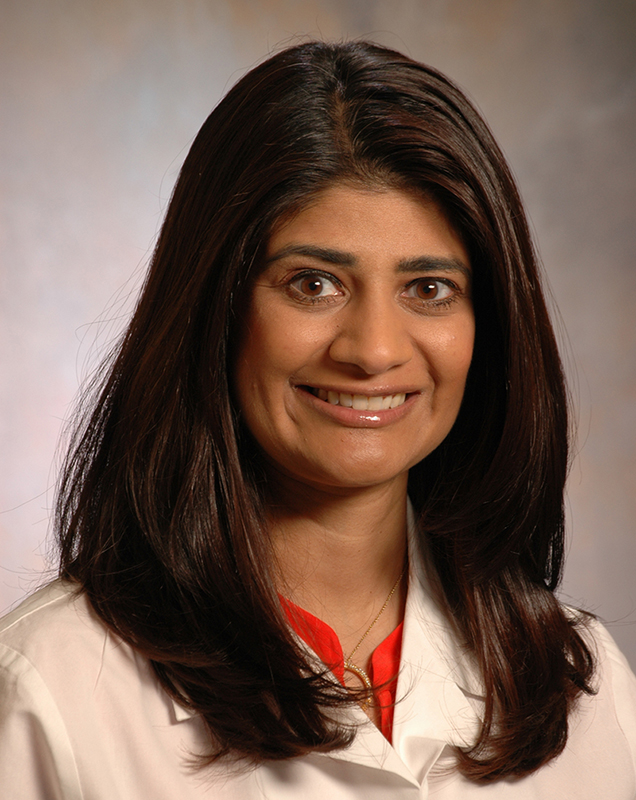 Dr. Sonali Smith is a Professor in the Department of Medicine at The University of Chicago, and Director of the Lymphoma Program. Her clinical research interest is in the development of new agents and rational combinations in the management of both treatment-naïve and relapsed/refractory lymphomas.
Dr. Sonali Smith is a Professor in the Department of Medicine at The University of Chicago, and Director of the Lymphoma Program. Her clinical research interest is in the development of new agents and rational combinations in the management of both treatment-naïve and relapsed/refractory lymphomas.
She has a special interest in the prognosis and biology of lymphoma, with an ultimate aim to personalize approaches based on individual risk factors. Dr. Smith has a number of leadership positions with national and international visibility. She is Vice-Chair of the SWOG Lymphoma Committee where she oversees clinical trial development at the cooperative group level and mentors faculty across the country. She is the incoming chair of the Continuous Professional Development Committee for the American Society of Oncology (ASCO) and currently serves as the chair of the ASCO Women in Oncology Subcommittee, and is also scientific track leader for Lymphoma/CLL for 2017. She has been an active member of the American Society of Hematology and is currently co-editor of Hematology, the society’s annual education book. Her previous ASH service includes membership on the Committee on Communications (2003-2007), the 50th Anniversary Planning Committee (2005-2007), the Committee on Education (2011-2014), representation to the American College of Radiology, faculty at the inaugural Clinical Research Training Institute in Latin America (2014), speaker at the Highlights of ASH and other small ASH meetings, and many years of providing abstract review and session moderator. She is also co-chair of the CIBMTR Lymphoma Working Group, and is currently studying the role of stem cell transplantation for patients with high-risk follicular lymphoma.
She has a special passion for patient education and is on the Scientific Advisory Board for the Lymphoma Research Foundation where she is also involved in mentoring junior faculty dedicated to lymphoma, and recently co-chaired the 2017 Lymphoma Clinical Research Mentoring Program and chairs the Lymphoma Research Foundation Chicago Rounds. Through ASH, ASCO, CIBMTR, LRF and SWOG, Dr. Smith collaborates on research projects, provides physician education, and works on workshops and websites aimed at providing reliable information for patients and families affected by lymphoma.
She has over 130 publications and given almost 200 presentations to peers and/or patient audiences. She is also on the Editorial Board of the Journal of Clinical Oncology and Cancer. Additionally, she has won several teaching awards at The University of Chicago, reflecting her commitment to training and education. In July 2017, she became the Elwood V. Jensen Professor of Medicine in the Department of Medicine at the University of Chicago.
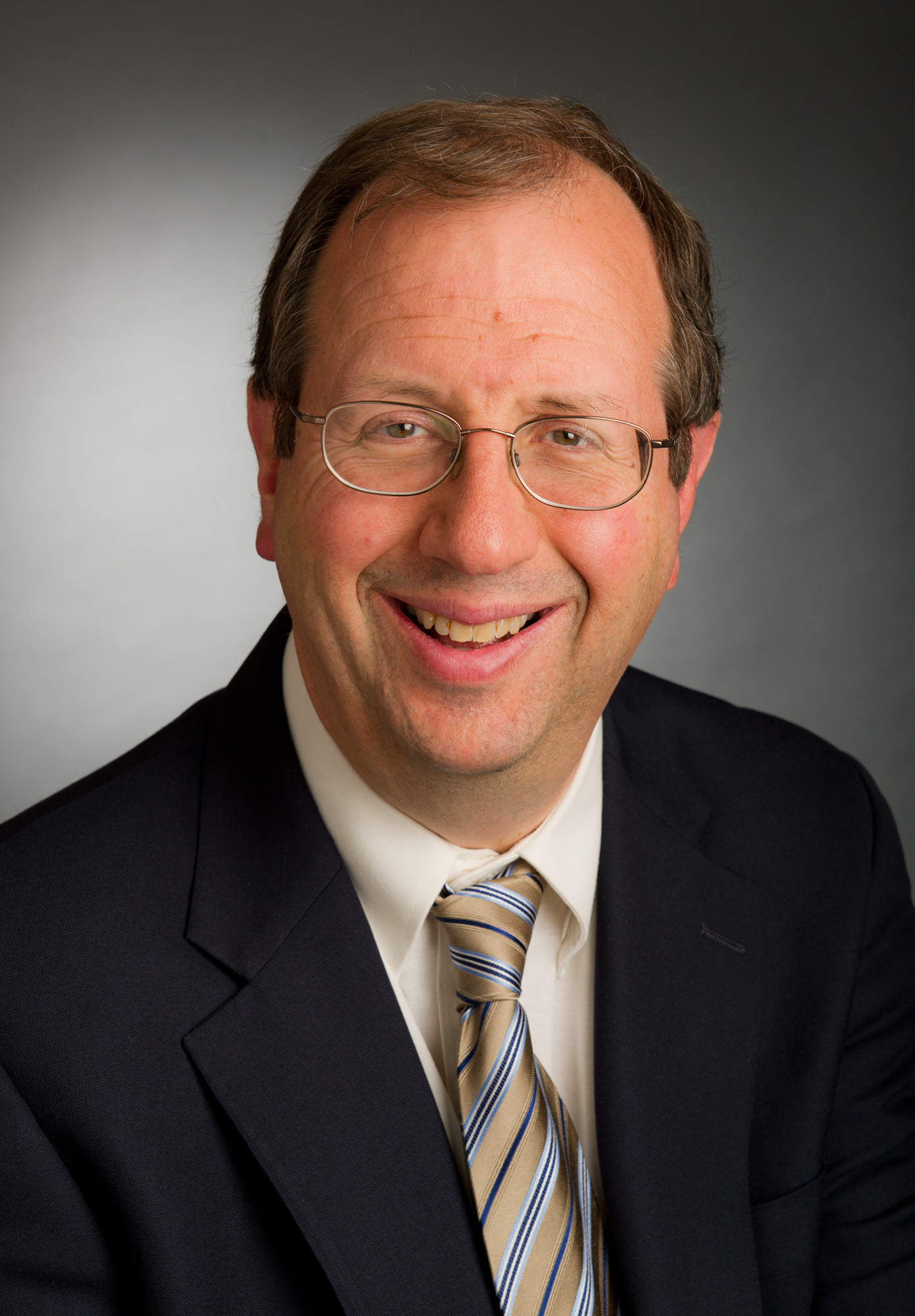 Richard Stone, MD, is the Chief of Staff and Director of Translational Research for the Adult Leukemia Program at Dana-Farber, and Professor of Medicine at Harvard Medical School. Dr. Stone is nationally recognized for his translational and clinical research concerning blood and bone marrow malignancies including acute leukemia, myeloproliferative disorders and myelodysplastic syndrome [MDS] (a bone marrow failure state that may convert to leukemia).
Richard Stone, MD, is the Chief of Staff and Director of Translational Research for the Adult Leukemia Program at Dana-Farber, and Professor of Medicine at Harvard Medical School. Dr. Stone is nationally recognized for his translational and clinical research concerning blood and bone marrow malignancies including acute leukemia, myeloproliferative disorders and myelodysplastic syndrome [MDS] (a bone marrow failure state that may convert to leukemia).
In addition to his work at Dana-Farber, Dr. Stone serves as Chairman of the Leukemia Core Committee for the national cooperative trials group, Alliance. He is a Vice Chair of the NCCN MDS panel and is also a member of the NCCN AML panel. He has been the Chair of the Medical Advisory Board of the Aplastic Anemia and MDS International Foundation, the Chair of the ABIM Auxillary ?? Board, and served on the editorial boards of Leukemia Research, Blood and Journal of Clinical Oncology.
Dr. Stone has been extensively in the yearly medical students, resident fellows and in graduate medical education through courses, on various lectures and review articles on expert of leukemia. He has published papers in the New England Journal of Medicine, Blood, Leukemia and numerous other journals. He had a significant leadership role in the development of five new drugs, for the treatment of acute myeloid leukemia (AML), that were approved in the past two years.
Dr. Stone earned his medical degree from Harvard Medical School in 1981. He
completed his internal medicine residency training at Brigham and Women’s
Hospital and his hematology-oncology fellowship at Dana-Farber.
Chief of Leukemia Service, Memorial Sloan-Kettering Cancer Center
Professor of Medicine, Weill Cornell Medical College
New York, NY
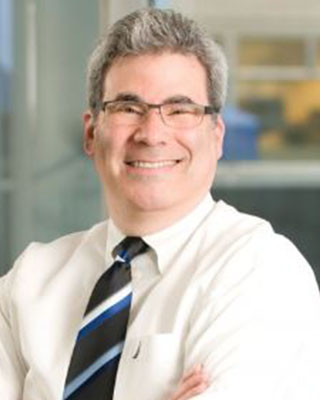
Martin S. Tallman, M.D., is Chief of Leukemia Service at Memorial Sloan-Kettering Cancer Center and Professor of Medicine at the Weill Cornell Medical College in New York. He is a diplomate of the American Board of Internal Medicine with sub-specialty certification in areas of hematology and medical oncology. He also served as Chair of the Leukemia Committee of the Eastern Cooperative Oncology Group for 16 years.
Dr. Tallman received his bachelor’s degree in Science at the University of Michigan in Ann Arbor, Michigan, and his medical degree at The Chicago Medical School in Chicago, Illinois. After completing an internship, residencies, and chief residency at McGraw Medical Center at Northwestern University, Dr. Tallman completed his fellowship in hematology/oncology at the University of Washington and the Fred Hutchinson Cancer Research Center in Seattle, Washington.
Dr. Tallman is a member of numerous committees of national, regional, and international professional societies involved in the study and treatment of cancer, including the American Society of Hematology, American Society of Clinical Oncology, and the Eastern Cooperative Oncology Group. He currently serves as Co-Chair of the Acute Myeloid Leukemia Panel of the National Comprehensive Cancer Network (NCCN).
Dr. Tallman has contributed a large body of work to the literature addressing the diagnosis, biology, and treatment of acute leukemia and other hematologic malignancies. This work includes original research articles in peer-reviewed journals, textbook chapters and reviews, monographs, editorials, and abstracts. He has spoken as an invited lecturer and chair at many national and international symposia, conferences, and meetings, including the American Society of Hematology Meeting, the American Society of Clinical Oncology Meeting, and the CIBMTR Tandem Annual Meeting. Dr. Tallman completed two terms as an Associate Editor of Blood. He is a reviewer for many professional publications, including American Journal of Hematology, Annuals of Internal Medicine, Bone Marrow Transplantation, Cancer Research, Journal of Clinical Oncology, and New England Journal of Medicine. He also serves as the Editor-in-Chief of Clinical Haematology: Best Practice and Research.
Professor of Hematology and Internal Medicine
Mayo Clinic
Rochester, MN
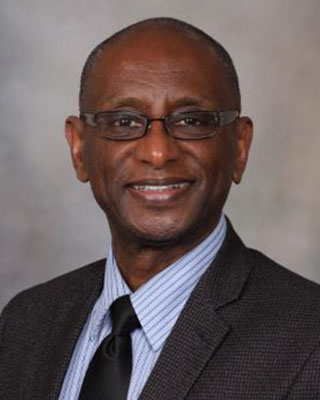
Dr. Ayalew Tefferi, MD, was born in Addis Ababa, Ethiopia, and migrated to the United States in 1982 after completing his medical school education at the University of Athens in Greece. Dr. Tefferi received his hematology training at Mayo Clinic before joining the faculty at Mayo Clinic College of Medicine, Division of Hematology, in the Department of Medicine. He is currently a full professor in hematology and internal medicine.
Dr. Tefferi is primarily engaged in direct patient care. His clinical and laboratory interests focus on myeloid disorders including polycythemia vera, essential thrombocythemia, myelofibrosis, chronic myeloid leukemia, myelodysplastic syndrome, acute leukemia, and the atypical myeloproliferative disorders including hypereosinophilic syndrome and systemic mastocytosis.
His academic and research achievements have been copious and include over 800 publications including books, book chapters, original articles, reviews, editorials, letters, and abstracts. Dr. Tefferi serves as an associate or section editor for the Mayo Clinic Proceedings, Leukemia, American Journal of Hematology, and European Journal of Hematology. He also participates in the editorial board of several journals including Blood, Cancer, Leukemia Research, Acta Haematologica, and Leukemia and Lymphoma. Dr. Tefferi has given more than 500 national and international invited lectureships and serves as faculty for the annual Hematology and Oncology Board review courses at George Washington University in Washington DC, Harvard in Boston, Massachusetts, and MD Anderson Cancer Center in Houston, Texas.
Professor of Medicine, Harvard Medical School
Director, Bing Center for Waldenström’s Macroglobulinemia
Senior Physician, Medical Oncology, Dana-Farber Cancer Institute
Boston, MA
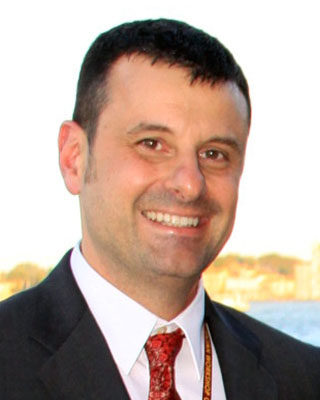
Dr. Steven Treon is the Director of the Bing Center for Waldenström’s Macroglobulinemia and a Senior Physician at the Dana-Farber Cancer Institute and Brigham and Women’s Hospital in Boston, Massachusetts. He is also a Professor of Medicine at Harvard Medical School, and is the Chair of the Waldenström's Macroglobulinemia Clinical Trials Group.
Dr. Treon earned his MD and PhD degrees with honors from the Boston University School of Medicine. He completed an internship in medicine and a residency in internal medicine at Boston University Medical Center, a clinical fellowship in Hematology and Medical Oncology at the Massachusetts General Hospital, and a Research Fellowship at Dana-Farber Cancer Institute and Harvard Medical School.
Dr. Treon's main research interests focus on understanding the genetic basis and pathogenesis of Waldenström’s Macroglobulinemia (WM) and the development of therapeutics for this malignancy. Using whole-genome sequencing, his laboratory first defined the genomic basis for WM that included the identification of highly prevalent activating mutations in MYD88 and CXCR4. Dr. Treon’s laboratory also identified that Bruton’s Tyrosine Kinase (BTK) was a downstream target of mutated MYD88. This finding enabled a clinical trial led by Dr. Treon that received the first ever breakthrough designation by the FDA, and subsequent fast track approval of the BTK inhibitor ibrutinib by the U.S. FDA and the European Medicines Agency. Dr. Treon’s work also showed that the mutation status of MYD88 and CXCR4 could be used as predictive markers for ibrutinib treatment response in WM. His current efforts are focused on defining the transcriptome and epigenome of WM, and the development of inhibitors that target MYD88 and CXCR4 signaling in WM.
Dr. Treon has served as the principal organizing chair of the International Workshops on WM. He is an active educator, and has taught broad audiences across the globe on the genetic basis, biology and therapy of WM. Dr. Treon has also published extensively on topics in WM and related disorders, with over 250 peer-reviewed original reports, authoritative reviews, editorials, and chapters included in many high-impact journals and textbooks. Dr. Treon has been honored with research and academic awards from various national and international medical foundations and institutions, including the Robert A. Kyle Award for Waldenström's Macroglobulinemia, the Jan Gosta Waldenström Lifetime Achievement Award, the Laurie Strauss Leukemia Foundation Outstanding Cancer Investigator Award, and the “One-Hundred Award” by the Massachusetts General Hospital. Dr. Treon has also been designated as one of “America’s Top Doctors” by U.S. News and World Report.
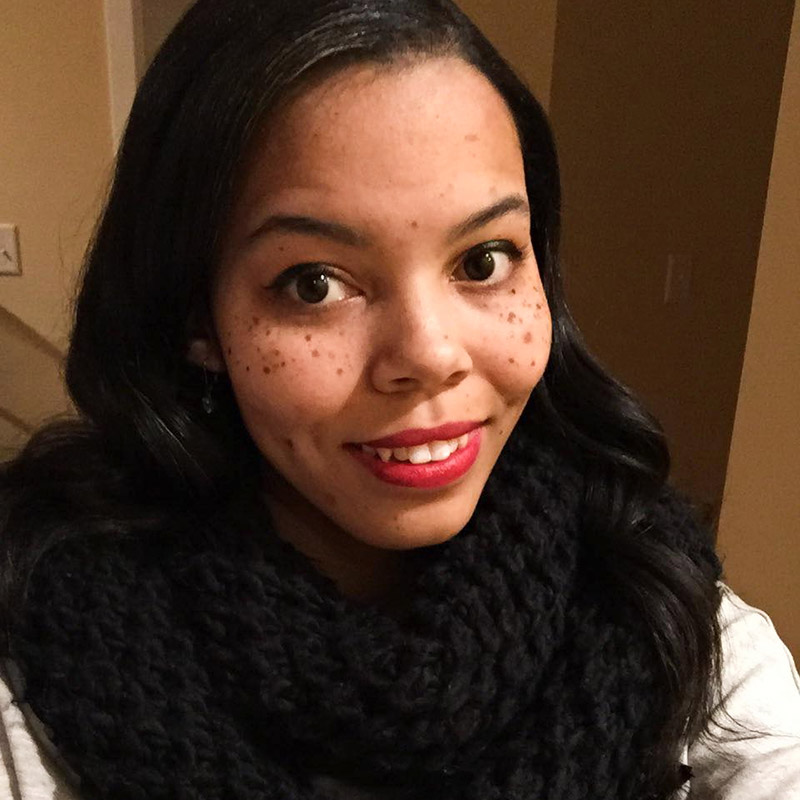
Meaghan Wiggins is a Chicago native, living in Carmel, who attained her Master of Arts from IUPUI-Herron, school of art and design in art therapy. Currently working with those whose lives have been impacted by cancer at Cancer Support Community, specializing in art therapy.
Additionally, makes time to create art herself, as an accomplished artist.
Nurse Practitioner
Hematology Oncology of Indiana
Indianapolis, IN

Michelle grew up in Wadsworth, Ohio. She graduated from Bowling Green State University with a Bachelor of Nursing Degree. She earned her Master of Science in Community Health Nursing and Family Nurse Practitioner degree from the University of Michigan in 1998. She is board certified as a Family Nurse Practitioner. After completing her training, Michelle moved to Indiana in 1998, and has been practicing in the Indianapolis area ever since. Over the last twenty years, she has worked in Geriatrics, Family Practice, Urgent Care, Otolaryngology, and Hematology/Oncology. Her areas of interest include patient education, underserved populations, and Oncology. She is a member of the American Academy of Nurse Practitioners, and American Society of Clinical Oncology, the Advanced Practice Nurses’ Society for Hematology and Oncology, and the Oncology Nurses’ Society.
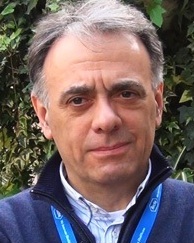
- Born in Arenzano (GE) 9th March, 1959.
- High School Qualification, in 1978.
- Graduated in Medicine and Surgery, with honours at the University of Bologna, in 1984.
- Obtained the Speciality in Hematology, with honours at the University of Bologna, in 1987.
- Awarded a “Post-Doctoral Fellowship in Medical Oncology” released by the “Roger Williams Cancer Center” of Providence (USA) in 1989.
- Chief of the clinical and translational program of the Lymphoma Unit at the Institute of Hematology and Medical Oncology “L. e A. Seràgnoli” from 1990.
- Member of the Italian Society of Hematology from 1986.
- Member of the Italian Society of Experimental Hematology from 1987
- Member of the American Society of Hematology from 1989.
- Member of the American Society of Clinical Oncology from 1989.
- Professor at the Institute of Hematology and Medical Oncology “L. e A. Seràgnoli”, University of Bologna from November 2002 to October 2018.
- Served as the principal investigator of more than 150 clinical trials (including phase 1 and 2 studies followed by expansion cohorts) in patients with Hodgkin, non-Hodgkin lymphoma, and chronic lymphocytic leukemia including national and international multicenter studies.
- President of Italian Foundation on Lymphoma (FIL) from November 2013 to November 2015 and now he is a member of the Board of Directors.
- Associate Editor of Annals of Oncology from January 2014 to December 2017 and he acts as a reviewer for journals such as Lancet Oncology, Journal of Clinical Oncology, Blood, Clinical Cancer Research, Cancer, Haematologica, Leukemia & Lymphoma, Leukemia, Clinical Lymphoma Myeloma.
- Full Professor of Hematology at the University of Bologna since November 2018.
- He has presented his research at more than 330 national and international meetings.
- He has authored over 500 peer-reviewed papers in journals such as New England Journal of Medicine, Blood, Journal of Clinical Oncology, Lancet Oncology, Annals of Oncology, Oncologist, Journal Hematology & Oncology, Haematologica.
- His current research interest includes clinical trial methodology, prognostic factors in NHL, Hodgkin’s disease, chronic lymphocytic leukemia, new drugs development, and hairy cell leukemia.
Associate Professor of Medicine, Department of Leukemia
Section Chief of Acute Lymphocytic Leukemia
The University of Texas MD Anderson Cancer Center
Houston, TX

Dr. Elias Jabbour is Associate Professor of Medicine in the Department of Leukemia at the University of Texas MD Anderson Cancer Center, in Houston, Texas.
He received his medical degree and his master’s degree in biologic sciences from Saint Joseph University in Beirut, Lebanon. He then received additional training at the University of Paris School of Medicine and completed his fellowship in hematology/oncology at the Saint Joseph University School of Medicine.
Dr. Jabbour is actively involved in developmental therapeutics research in leukemia. His research focuses on acute lymphocytic leukemia, chronic myeloid leukemia, myelodysplastic syndromes, and acute myeloid leukemia. Additionally, he has authored or co-authored hundreds of peer reviewed medical publications and has served on editorial boards of several scientific journals.
Professor of Medicine
Evelyn and Edwin Tasch Chair in Cancer Research, Division of Hematology-Oncology
Deputy Director for Research Operations and Interim Director
UC San Diego Moores Cancer Center
La Jolla, CA
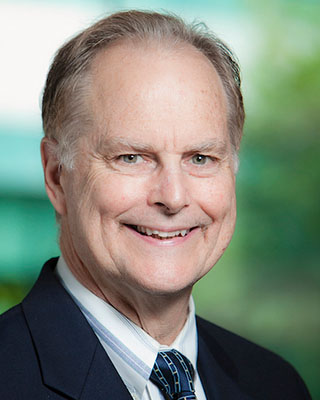
Thomas Kipps, MD, PhD, is Distinguished Professor of Medicine, Evelyn and Edwin Tasch Chair in Cancer Research, and Deputy Director of Research Operations at the University of California San Diego Moores Cancer Center. He received his M.D. and Ph.D. in Immunology from Harvard University and completed his residency and fellowship training in Internal Medicine, Hematology, and Genetics at Stanford University.
Dr. Kipps is internationally renowned for his translational research on immunologic approaches for the treatment of cancer and understanding the biologic mechanisms that contribute to cancer, in particular chronic lymphocytic leukemia (CLL).
Dr. Kipps has over 25 years’ experience in combining research and clinical care responsibilities, and over 350 peer-reviewed publications. As Deputy Director of Research Operations, he is working to integrate basic and translational research at the Moores Cancer Center with basic and translational scientists, clinical investigators, epidemiologists, and physicians, who offer state-of-the art therapies for patients with various forms of cancer. Dr. Kipps directs the multi-institutional, NIH-sponsored CLL Research Consortium (CRC) and directs a Specialized Center of Research in Leukemia supported by the Leukemia & Lymphoma Society. In addition, he is a two-time awardee of the NIH MERIT Award and recipient of the Binet/Rai medal for contributions in CLL research. He also is the principal investigator for a Disease Team III project sponsored by California Institute for Regenerative Medicine, in which he developed a humanized anti-ROR1 monoclonal antibody (mAb), designated UC-961 (or cirmtuzumab), for which he now holds the IND with which to conduct clinical trials examining the safety and efficacy of this mAb in the treatment of patients with cancer.
Associate Professor of Medicine, Myeloproliferative Disorders Program
Tisch Cancer Institute, Division of Hematology/Oncology
Icahn School of Medicine at Mount Sinai Medical Center
New York, NY
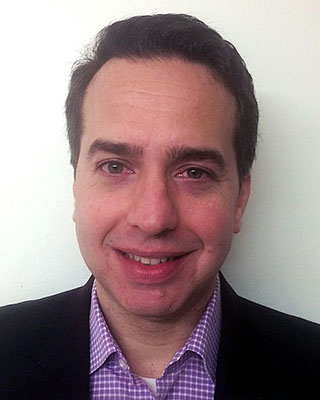
Dr. John Mascarenhas is Associate Professor of Medicine in the Myeloproliferative Disorders Program of the Tisch Cancer Institute, Division of Hematology/Oncology at the Icahn School of Medicine at Mount Sinai. He received his medical degree from New York Medical College and his master’s degree in biological sciences from Mount Sinai Graduate School. Additionally, he completed his residency training in internal medicine at Brown University and his fellowship in hematology at Mount Sinai Hospital.
Dr. Mascarenhas is a clinical investigator in malignant hematology with a focus in translational research involving the Myeloproliferative Neoplasms. Dr. Mascarenhas is primarily responsible for the clinical trials arm of the Mount Sinai School of Medicine Myeloproliferative Disorders Program. Dr. Mascarenhas has a large clinical practice of myeloid malignancies and is specifically interested in the development of novel therapies for patients with polycythemia vera, essential thrombocythemia, myelofibrosis and forms of acute myeloid leukemia. He is the Principal Investigator of over a dozen clinical trials including Phase I, II and III trials. In addition, Dr. Mascarenhas treats patients with myelodysplastic syndrome, hypereosinophilic syndrome, systemic mastocytosis, chronic myelomonocytic leukemia and related issues.
He also serves as the Principal Investigator of the clinical trials arm of the National Cancer Institute sponsored Myeloproliferative Disorder Research Consortium. Dr. Mascarenhas serves on clinical trials steering committee for Incyte and on a DSMB for Novartis. Clinical trial funding is paid to the institution from Incyte, Novartis, Roche, Promedior, Janssen and CTI Biopharma.